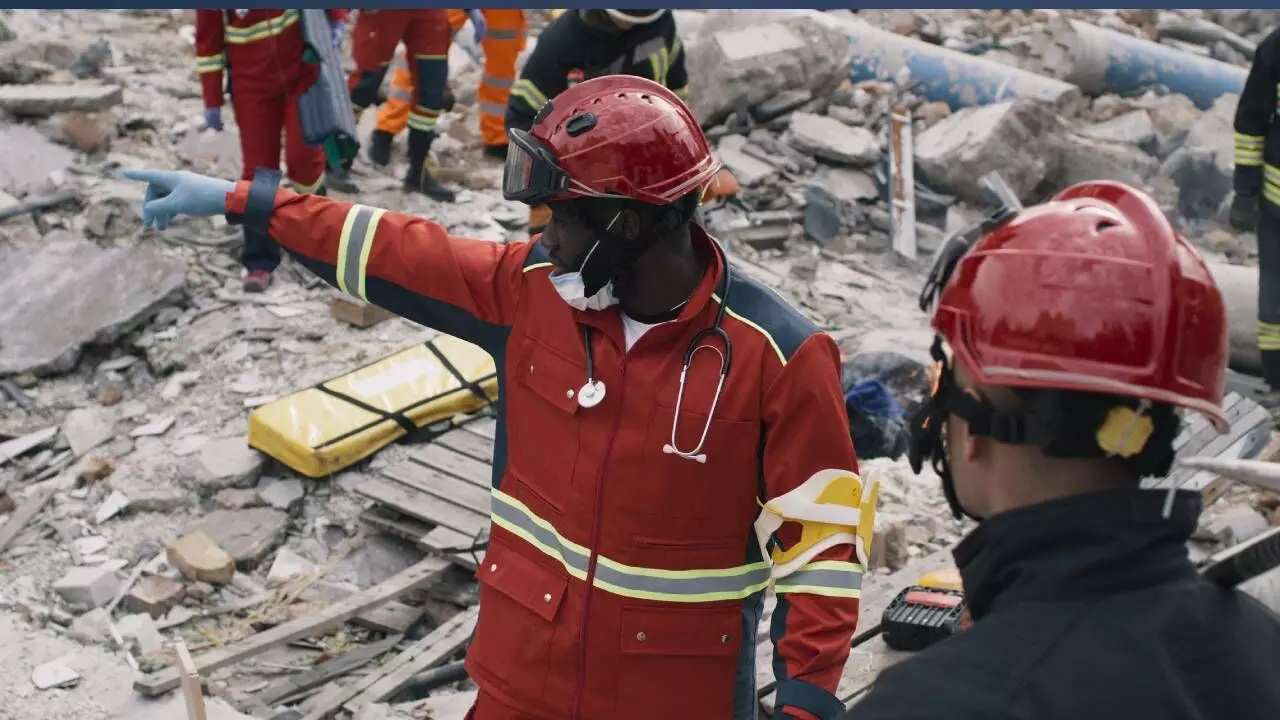International SOS Marks World Humanitarian Day with New Global Guidelines for Aid Workers
The humanitarian sector is facing increasingly complex challenges. Humanitarian crises are becoming more frequent, widespread and protracted due to escalating conflicts layered with intensifying climate-related incidents and disease outbreaks
image for illustrative purpose

Mumbai, Aug 16: The humanitarian sector is facing increasingly complex challenges. Humanitarian crises are becoming more frequent, widespread and protracted due to escalating conflicts layered with intensifying climate-related incidents and disease outbreaks.1 As World Humanitarian Day approaches, International SOS, the world’s leading health and security services company, acknowledges the vital role of aid workers in delivering life-saving assistance to millions worldwide and provides a comprehensive framework for humanitarian organisations to prioritise the safety and wellbeing of their workforce. These guidelines focus on proactive risk management, robust security measures and holistic employee support.
The United Nations Office for the Coordination of Humanitarian Affairs (OCHA) estimates that nearly 300 million people worldwide will require humanitarian assistance and protection throughout 2024.2 However, the targeting and disruption of health, education and water facilities have left millions without critical services, while humanitarian workers face increased risks, including injuries, deaths and detentions.2 According to the Aid Workers Security Database, there have been 102 major incidents of violence against aid workers this year globally.3
This escalation is further evidenced by the large number of workers requiring medical care. Iqarus, a wholly owned subsidiary of the International SOS Group and the world leader in delivering high standards of medical care and training in the world’s most challenging operating environments, reported treating around 10,000 patients who were working across the humanitarian aid sector in conflict-affected and post-conflict locations last year alone. This number highlights the immense physical and mental health strains endured by humanitarian workers on the frontlines.
Furthermore, living and working in high-stress environments, humanitarian workers often spend long hours under adverse conditions. The transition back from a deployment can also be challenging. Research indicates a substantial decline in personal health among long-term aid workers during missions. Injuries resulting from accidents and violence pose significant risks, often surpassing those from disease or natural causes.4 The likelihood of medical evacuations, hospitalisations, or fatal incidents is estimated at approximately six per 10,000 aid worker person-years.5 These figures vary based on location, crisis type and duration of deployment.
Dr Cat Davison, Regional Medical Director for Europe, Middle East & South Asia (EMESA) at Iqarus, emphasises the importance of humanitarians prioritising the safety and wellbeing of their teams. She states, "It is crucial for organisations to have strong clinical care support to manage the complex health issues that humanitarian aid workers face in challenging environments. Comprehensive pre-deployment assessments are essential. Thorough physical and mental health evaluations can identify potential vulnerabilities and inform necessary precautions. Medical personnel responding to infectious disease outbreaks face heightened exposure risks, necessitating strict adherence to infection control and personal protective equipment protocols. Additionally, the psychological toll of high-stress missions cannot be ignored. Aid workers often return with elevated levels of anxiety, depression or post-traumatic stress disorder, emphasising the critical need for comprehensive post-deployment care, including mental health support.”
Michael Rogers, Chief Security Analyst at International SOS, commented, “The safeguarding of humanitarian and health workers remains an urgent and paramount concern. Operating in environments fraught with insecurity, often stemming from armed conflict, criminal activity or natural disasters, these individuals face extraordinary risks while delivering life-saving aid. Factors like political instability further exacerbate these challenges, often hindering operational efficiency and making it more difficult to access vulnerable populations. Organisations must prioritise the safety and security of their workforce as a fundamental aspect of their operations. This includes conducting rigorous risk assessments, scenario planning and providing comprehensive training as part of a robust security programme.”
Rogers adds, “In addition to the comprehensive training that aid workers require ahead of and during their deployment to high-risk areas, these personnel require access to reliable and actionable intelligence. The intelligence should include real-time tactical support through local contacts where possible, as well as operational and strategic intelligence from a trusted partner like International SOS. Equipping aid workers with the appropriate tools to navigate the security challenges they confront is crucial for their safety and the success of the humanitarian aid

